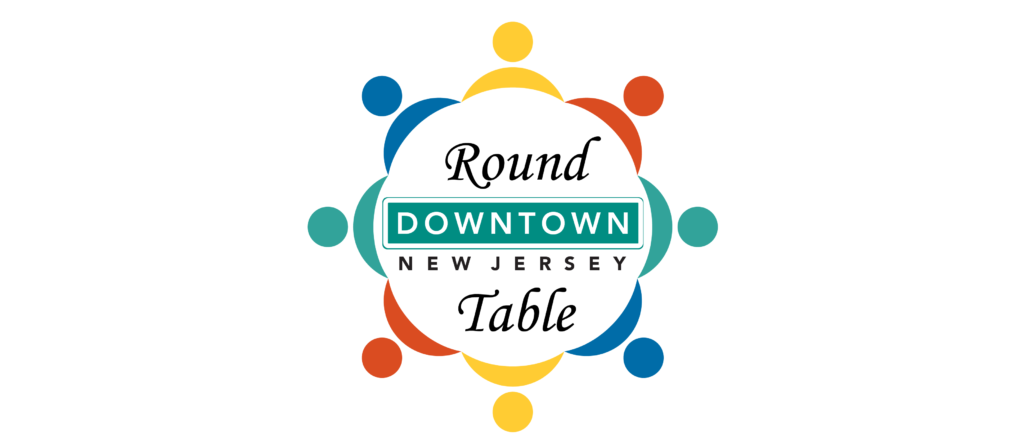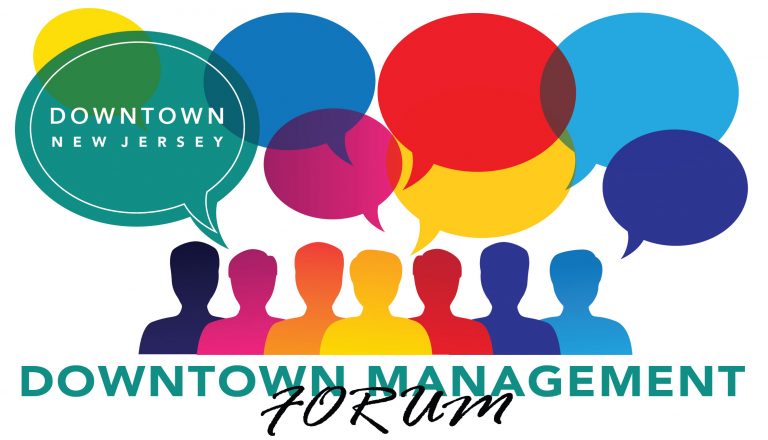Downtown Management Round Table
Courtenay D. Mercer, PP, AICP
Executive Director, Downtown New Jersey
March 15, 2019
More than 20 downtown managers, economic development directors and non-profit representatives gathered at round table discussion in Newark on March 15th to exchange ideas about hot topics in downtown economic development. The topic for this round table was funding for facade improvements and other downtown beautification initiatives.
The afternoon began with welcoming remarks from South Ward SID Executive Director, Ronice Bruce, representing the host community of the March round table. To kick off the discussion, Christina Fuentes of NJ Economic Development Agency (EDA) Small Business Services and Jef Buehler of NJ Department of Community Affairs (DCA) Local Planning Service’s Main Street NJ program both gave brief remarks about resources available to downtowns.
The EDA’s Small Business Services includes a small team of professionals that provide technical and financial assistance to small businesses. The Business Improvement Incentive (BII) program offers 50% grants of up to $20,000 for improvements to ground floor retail establishments within the Garden State Growth Zone (GSGZ). Ms. Fuentes relayed that there was relatively little interest in the program, however, so it will be ending at the end of this fiscal year. During discussion, round table participants suggested that the prevailing wage requirement may be one cause of disinterest. They further suggested that the EDA consider working directly with towns and/or Special Improvement Districts (SID) to establish a re-grant program, since these entities are more familiar with their small business community’s needs.
Another EDA initiative, the Small Business Lease Assistance Program, reimburses 15% of annual lease payments to profit businesses and non-profit organizations in eligible areas that plan to lease between 500 and 5,000 square feet of new or additional market-rate, first-floor office, industrial, or retail space for at least 5 years. This program is only available to businesses in Atlantic City, Bridgeton, Camden, Jersey City, Millville, Mt. Holly, Passaic, Paterson, Phillipsburg, Plainfield, Salem, Trenton, and Vineland.
The EDA also makes capital available to financial intermediary organizations to offer term loans and lines of credit to micro-enterprises and small businesses not qualified for traditional bank financing. Finally, EDA has Technical Assistance Partners, such as UDEDC and the New Jersey Small Business Development Centers (NJSBDC), who provide technical support, training, and financing to small businesses and entrepreneurs.
The DCA’s Main Street NJ (MSNJ) program regulations were released Marth 18, 2019, establishing the rules for designating a Main Street and the benefits of the program. Existing Main Streets will automatically be renewed. The new program will also include microgrants for placemaking and façade improvements. The DCA will be organizing a series of regional workshops to go over the new MSNJ program, and provide training about downtown trends and how to use the National Main Street Center’s new Transformation Strategies and the Main Street ApproachTM to revitalize and manage your downtown and mixed-use districts.
The NJ Main Street program also conducted an Improvement District Census that was released in 2018 and was the subject of a DNJ Conference session in October.
The DCA’s Downtown Business Improvement Zone (DBIZ) Loan Fund provides a 0% loan up to $600,000 for physical improvements and projects in an Improvement District with a District Management Corporation. The loans have a 10 to 15-year payback, and only those over $100,000 require a match. The program does not have a prevailing wage requirement. Westfield used the loan program to finance its façade grant program, creatively using the business owner match as their DBIZ grant match. Community Development Block Grant (CDBG) funds are another potential funding source to leverage as the match.
The DCA’s Neighborhood Preservation Program (NPP) provides a $125,000 grant per year over 5 years for improvements and assistance within vulnerable census tracts in 75 municipalities. While the funds are directed to the municipality, District Management Entities can serve as the community’s NPP coordinator, utilizing up to $20,000 per year for administration. NPP eligible census tracts can be identified using the NJ Community Asset Map.
The DCA’s Neighborhood Revitalization Tax Credit Program (NRTC) offers funds for low-income communities to create a comprehensive revitalization plans. New regulations for this program are currently being written.
Mr. Buehler also relayed other tools to encourage improvements by property owners. The Abandoned Properties Rehabilitation Act (P.L. 2003, c. 210) enables municipalities to determine that abandoned properties are a nuisance and require that the nuisance conditions be abated through immediate demolition, stabilization, or repair. Often, just the threat of using this law encourages property owners to make improvements to otherwise derelict or abandoned properties. The Housing and Community Development Network has a good primer on dealing with abandoned properties, including creating an abandoned property list.
SIDs also have the ability to encourage property owners to fill vacant spaces or address abandoned properties through their assessment powers. NJ law does not prohibit a SID from creating assessment tiers that require larger sums from vacant or abandoned properties. Voorhees Township, for example, included a long floundering mall in its improvement district. The imposition of the assessment encouraged to property owner to sell the property, which allowed the new owner to begin much needed improvements to revitalize the property.
Subsequent to the remarks by Ms. Fuentes and Mr. Buehler, all participants shared ideas and knowledge about policies, initiatives, and resources available for façade and other physical improvements downtown. The following is a brief synopsis of the discussion:
- Round table participants relayed frustration in situations where districts include a high percentage of tax-exempt properties (i.e. non-profits and government). Mr. Buehler explained that the law does not exclude non-profits from being assessed in improvement districts, many just choose to exempt them. He also gave the example of Trenton, where the State pays the SID an “assessment in lieu”.
- Participants were interested in public art programs, discussing utility box wraps as a simple installation. For murals, a participant recommended using a “wall easement” that designates the responsible party for the installation and maintenance of the mural. It was further recommended that any mural program include clear guidelines and a steering committee to ensure murals meet community standards. Participants cited the National Consortium of Placemaking and Sustainable Jersey’s community coaching program as potential resources for public arts guidance.
Overall, the round table was incredibly informative and great forum for sharing ideas and experiences. The next Downtown Management Round Table is June 15the in Red Bank, where Donna Harris of Heritage Consulting, Inc will lead a discussion about attracting and cultivating volunteer leadership. If you are interested in hosting a future round table, please contact DNJ Executive Director, Courtenay Mercer, at info(at)downtownnj.com or (201) 472-0356.


